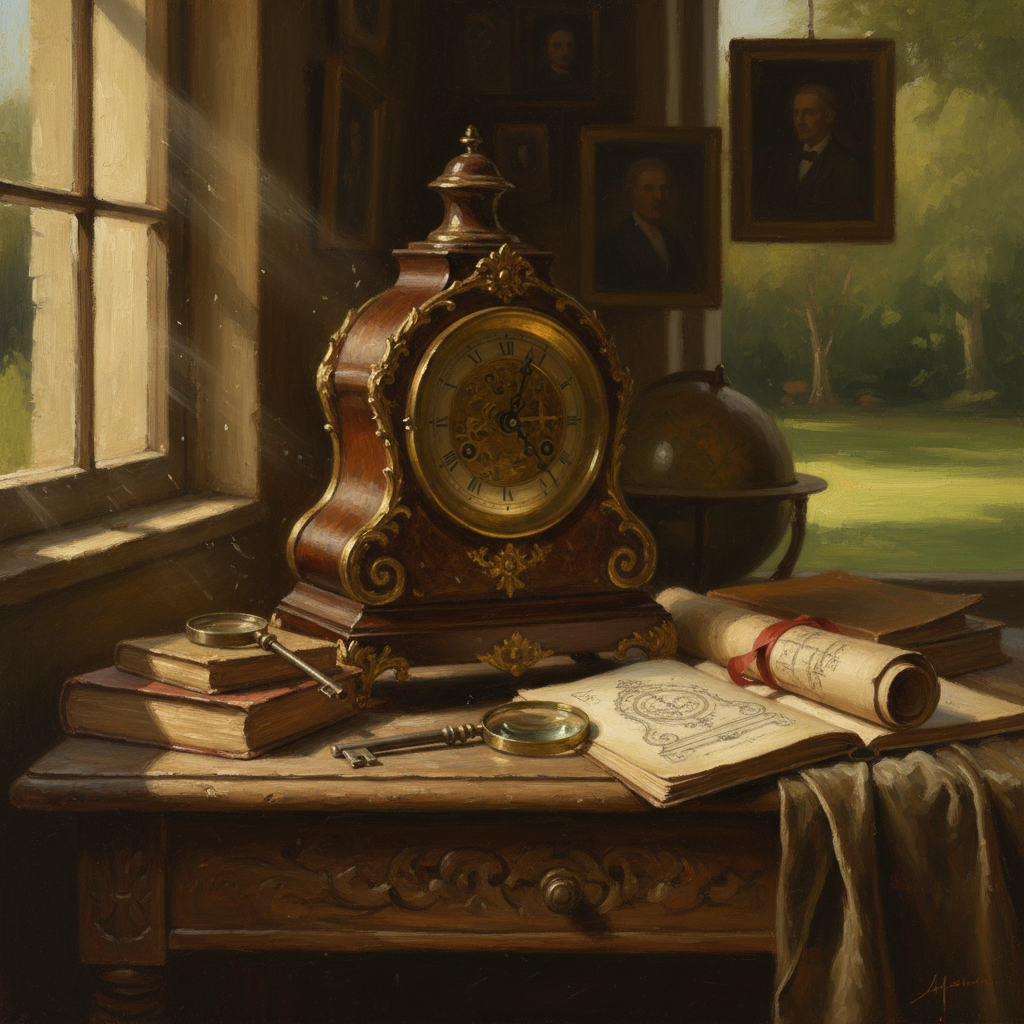The Mysterious Legacy of William Ives: A Tale of Lost Humility and Hidden Brotherhood
In the dim glow of dawn, the small village of Ariail lay wrapped in a veil of tranquil silence. But inside the heart of young historian Chloe Climelia Ives, a storm of anticipation brewed. Today, she was on the path of uncovering an ancestor she had only heard whispers about—her 3rd great-grandfather, William Ives, a man whose life was a kaleidoscope of humility, kindness, and an enigma wrapped in brotherhood.
Growing up, Chloe had often listened to her grandmother’s tales of the Ives family, stories spun with threads of simplicity and embedded with profound values. Yet, William’s story, though frequently mentioned, always felt incomplete, like an unfinished symphony longing for its closing notes. Determined, Chloe set out to find those missing notes within the archives of her family’s history.
As she cautiously sifted through the yellowed pages of letters and the fading ink on old deeds and court records, William’s figure began to emerge, shadowy yet distinct. An 1840s businessman, he had moved from the bustling streets of New York City to a quiet upstate town, a decision that puzzled her. What had driven him to leave the thriving hub of opportunity for the solitude of the countryside?
Chloe’s hands trembled slightly as she unearthed a letter, its edges frayed and delicate. Dated September 12, 1846, it was addressed from William to a certain Samuel Ariail, a name she had stumbled upon in passing but never connected to her grandfather. The letter revealed a brotherhood that transcended blood—an alliance of ideals that brought these men together.
“Dear Samuel,” it began, “I find in you a mirror of my own soul. This world, driven by power and wealth, often forgets the virtues of humility and kindness. Together, we can build a haven for those forgotten by society—a sanctuary that values brotherhood above all.”
With each sentence, Chloe felt the pulse of the past in her fingers. William wasn’t merely an ancestor; he was a visionary seeking to build his legacy on the foundation of compassion and community. The letter hinted at a communal dwelling, a place of refuge in the town’s outskirts, founded on the very principles Chloe’s family cherished. Yet, there was an air of mystery—why was this endeavor not spoken of more openly in family tales?
Driven to new depths of curiosity, Chloe followed the paper trail to a cluster of newspaper clippings, their pages brittle, preserved by time. An article from the local gazette dated March 1848 caught her eye. It announced the establishment of “The Ives-Ariail Refuge,” a place where men and women seeking redemption and purpose could find shelter and community. Despite its noble cause, the refuge was short-lived, closing just four years later under circumstances clouded in obscurity.
Chloe pondered the snippets of information, piecing together a narrative from the echoes of her great-grandfather’s past. Here was a man who had traded prosperity for principle and, though his refuge failed to take root, had left behind an indelible lesson in selflessness and resilience.
As dusk fell, casting long shadows over the Ariail village, Chloe sat by the window of her ancestral home, reflecting on the day’s discoveries. There was a kind of peace in knowing William’s quiet revolution, a satisfaction in stitching together the lost pages of his life story—a story that spoke not of failure, but of the relentless pursuit of a life lived for the greater good.
With each new revelation, Chloe felt the threads of her family’s history becoming more vivid, the tapestry of their lives richer. And in honoring the legacy of William Ives, she embraced her role as the keeper of stories, the bearer of a lineage that cherished humility and the quiet strength of brotherhood.
Her heart, full with the wisdom of the past, whispered the words she would forever carry forward: “The story never ends, only changes hands.”



